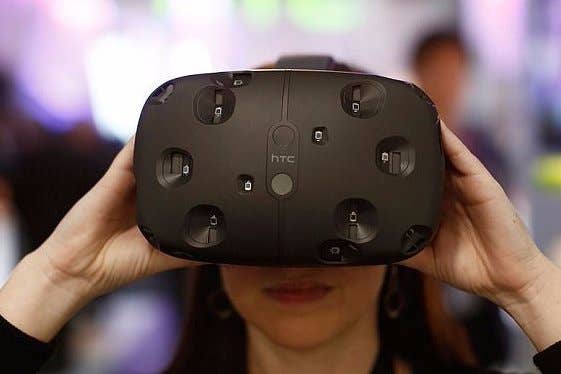Valve: "Getting people sick isn't a choice"
Chet Faliszek explains VR's future depends on defeating motion sickness
Standing at a makeshift pulpit during Iceland's first inaugural virtual reality conference Slush Play, Valve's Chet Faliszek has a simple manifesto: "Getting people sick isn't a choice."
Faliszek, who is currently working with game developers testing the Valve-approved VR head-mounted display the HTC Vive, says the future of VR depends on finding a solution to motion sickness in its users.
So far nausea in VR has proven a valid concern for developers. Earlier this year Walt Disney Imagineering's Bei Yang said it may simply be an unavoidable risk of virtual reality technology - the result of a "mismatch" between the VR experience players see with their eyes and the physical experience registered in the inner ear.
But according to Faliszek, the problems of motion sickness can be solved within the technology if developers think outside the box.
"Telling people they will be okay 'Once you get your VR legs' is a wholly wrong idea," Faliszek told an audience of developers and investors in Reykjavik. "If people need to get used to it then that's failure. It has to run at 90 frames per second. Any lower and people feel sick."
Countering a recent study that suggests adding a virtual nose to what the player sees will stave off nausea using that fixed and familiar point of reference, Faliszek argued it's the wrong way of solving the problem: "Putting a nose on the screen isn't the answer," he says. "When you do it right nobody gets sick."
The simple fact, said Faliszek, is developers need to experiment. Virtual reality changes how users "interact and experience the world," he says. "VR actually changes the game and experience - embrace that and experiment with that. Just because a game genre has been around for 35 years doesn't mean it'll work with VR. How do you move around in VR? Locomotion is a real problem. Or you might find out that that genre shouldn't exist anymore. It doesn't work."
"Even video games have existed for over 40 years. VR has only really existed for about a year. We're about Pong level."
In a call to arms to his fellow VR developers, he continued: "No one is in competition right now; We should all be helping each other."
"When it comes to VR we don't know anything. We don't know what we are doing. We are making guesses and play testing.
"Everyone should try everything because none of us know what the hell we are doing, so let's all try everything and share with each other what we are doing and what we learn along the way as we all try and figure out this whole damn mess without getting people sick."

